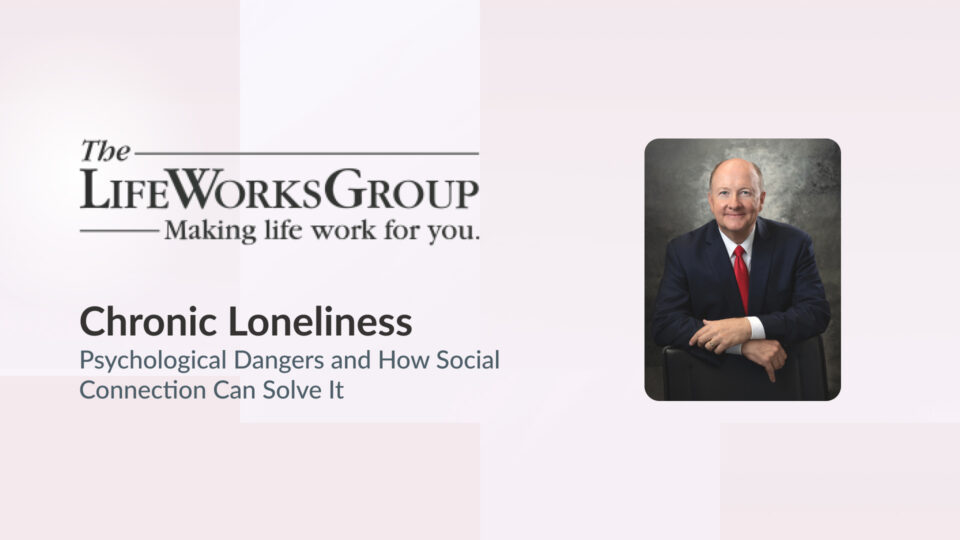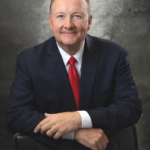
Chronic Loneliness:: Psychological Dangers and How Social Connection Can Solve It
Pricing
Information
Recorded
-
-
Learning Objectives
Participants will be able to:
-
Define each primary type of loneliness: developmental loneliness, internal loneliness, and situational loneliness.
-
Identify 2 ways each type of loneliness can intensify symptoms of anxiety, depression, cumulative stress, acute stress or traumatic stress, particularly among the elderly.
-
Describe 3 factors that create social connection as a therapeutic form of intervention.
-
Identify 3 social strategies to boost confidence and social connection across generational life stages.
Educational Goal
The educational goal of this workshop is to increase knowledge about loneliness and social isolation and identify interventions to improve social connection.
Description
80% of the adult population in the United States report loneliness as a major factor at times in their life. As loneliness builds, it can lead to low self-worth, negative emotions of resentment, bitterness, guilt, shame, interpersonal conflicts, job loss, poverty, weakened health, or mental distress. Three types of loneliness common to humans are developmental, internal, and situational. Each type affects people differently based on age, developmental stage, support system, and access to mental health care. Consider research from the National Institute of Mental Health (NIMH), Health Resources and Service Administration (HRSA), and the U.S. Census Bureau to understand how significantly loneliness has become a challenge to public health:
• Loneliness and social isolation can be as damaging to health as smoking 15 cigarettes a day
• Social isolation was associated with a 50% percent increased risk of dementia
• Two in five Americans report they feel their social relationships are not meaningful, and one in five say they feel lonely or socially isolated
• Aging adults who are socially isolated are at a higher risk for depression
• Poor social relationships were associated with a 29% increase in the risk of coronary heart disease and a 32% rise in the risk of stroke
• Social isolation significantly increases a person’s risk of premature death from all causes. A risk that may rival those of smoking, obesity, and physical inactivity
• Loneliness was associated with higher rates of depression, anxiety, and suicide
Untreated loneliness can lead to serious physical and psychological health consequences. Clinicians need to identify the challenges associated with social isolation to prevent mental health or behavioral health problems and to feel confident building new social connections.
Target Audience
- Counselor
- Marriage & Family Therapist
- Psychologist
- Social Worker
- Substance Use Disorder Professionals
Presenters

Dwight Bain has guided thousands of people through challenging times as an Author, Nationally Certified Counselor, Certified Leadership Coach, Licensed Mental Health Counselor, and former Family Law Mediator in clinical practice since he founded our counseling group in 1984.
With over 55,000 hours of face-to-face counseling and coaching experience, Dwight can create a growth plan to guide you past the pressure toward greater purpose and fulfillment. He has spoken to thousands of groups about the strategy of creating positive change at organizations like Toyota, Disney, DuPont, United States Army, American Counseling Association, Florida Mental Health Counseling Association, and the International Critical Incident Stress Foundation.
The media trust these change strategies for their readers, viewers, and listeners, which is why Dwight has been interviewed on hundreds of radio and television stations and quoted as a Change Expert in over 100 newspapers – magazines – and websites, including The Washington Post, New York Times, Chicago Tribune, Los Angeles Times, Miami Herald, Atlanta Journal, Investor’s Business Daily, Orlando Business Journal, Sacramento Bee, CBN.com, Orlando Sentinel, FoxBusiness.com, MSNBC.com, Newsday and quoted in over 20 books on creating positive change.
He is the author of “Destination Success,” a book on creating a balanced life printed in multiple languages, and he is the co-author of five other books on mapping out a plan greater than the pressure you are facing.
Dwight spent over 15 years as a Family Law Mediator working alongside families in complex situations and high-conflict family-owned businesses. He worked with these families through power struggles to resolve conflict and move toward peaceful resolutions. This work included serving two years as an affiliate member of the Florida Bar on the committee protecting the needs of children in complicated divorces.
He is a senior trainer in community crisis management credentialed by the International Critical Incident Stress Foundation and the University of Maryland, which has allowed him to help rebuild stability after national disasters like the Columbine and Parkland School Shootings, Hurricane Katrina, the Orlando Pulse Terrorist Attack, and the devastation in New York City after the terrorist attacks of 9/11 where he worked with a team helping first responders and survivors.
Dwight has lived in Orlando, Florida, for a life. He lives with Sheila, his wife of over 30 years, their two young adult children, and an assortment of pets.
Financially Sponsored By
- The LifeWorks Group, Inc.